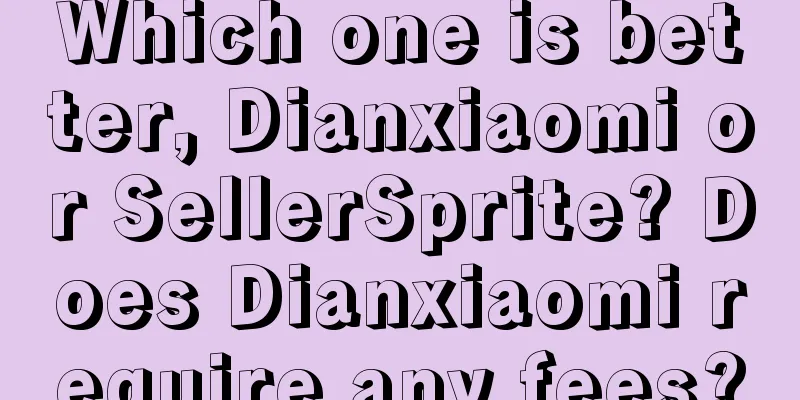Fake charity short video, a mess

Recently, a short video blogger named "Yunnan Bobo" filmed a series of videos showing the hard life of an old man and a little girl in Daliang Mountain, and donated 3,000 yuan to support their lives. The short video initially won people's approval and support, but it was soon revealed that there were many fakes in the video, which attracted widespread attention and topped the hot search list. In the end, "Yunnan Bobo" was sentenced to fifteen days of administrative detention and his short video account was banned. Although the ending is gratifying, it cannot be ignored that fake charity short videos have hurt people's feelings countless times. Although the supervision is becoming more and more stringent, there are still people who treat the originally heartwarming and touching mutual assistance stories as business, and countless times use fake charity to consume people's kindness. People who are already becoming increasingly exhausted can’t help but ask, why do fake charity short videos always manage to come back to life? 1. The traffic password that never gets oldAs early as the rise of live broadcasting and short videos, fake charity had already caused a sensation. In November 2016, also in Daliangshan, dozens of anchors including "Brother Jie" and "Uncle Hei" gathered villagers to pose for a video of donating cash and supplies. What makes people laugh and cry is that the truth was made public because of internal conflicts in the fraud team, which split into several groups and exposed each other's fake charity through short videos. After the incident was exposed, it caused a strong public response, and the local relevant departments also imposed severe penalties on the anchor involved. The relevant short video platform subsequently launched a special rectification and banned dozens of similar fake charity accounts. Over the past seven years, the media environment has developed and changed rapidly, but pseudo-charity short videos have always appeared on the stage again and again with similar scripts and development trends. Around 2021, pseudo-charity accounts such as "Hanwen Team", "Kwon Brother Talks about Emotions" and "Long Hao Brother" appeared in large numbers, all of which aroused people's sympathy and satisfied their own interests through staged photos. In the face of the chaos of fake charity, relevant short video platforms have also repeatedly taken strong measures to crack down on fraudulent behavior through special rectification actions and other means, and punished the anchors involved by banning live broadcasts and banning accounts. The public security organs also pay close attention to related incidents and impose relevant administrative and criminal penalties. However, on major short video platforms, there are still operating teams that deceive local people or directly hire actors to perform seemingly touching stories with carefully designed scripts, constantly overdrawing people's sense of justice and trust. In March 2021, Douyin issued the "Notice on Punishment for Violations of "Selling Misery to Promote Goods and Acting to Hype", banning pseudo-charitable accounts such as "Quan Ge Talks about Emotions" 2. Crazy methods that prioritize monetizationWhy are fake charity short videos so popular despite repeated bans? For counterfeiters, the low cost of counterfeiting can quickly win people's goodwill and support, and the rich and diverse profit-making methods ultimately form a huge profit space that is hard to refuse: Fans' support is the most basic means of monetization. For netizens, the most direct and common way to show love is to give gifts to the anchors through simple operations on their mobile phones. This is both an affirmation of the anchors' love and support, and an expectation that the anchors can use the proceeds from "gifts" for charitable purposes. The earliest fake anchors, such as "Brother Jie" and "Uncle Hei", made profits by combining fake charity videos with live broadcasts. During the live broadcasts, they repeatedly encouraged fans to give more gifts and promised to use the income from the gifts to help those in need. Fans who did not know the truth believed that they could spread love in this way, which enabled the two fake gangs to profit more than 250,000 yuan and more than 230,000 yuan respectively in just one month. Fans' commissioned donations will also be pocketed by counterfeiters. Some netizens who want to help the subjects directly do not have the time or energy to visit them in person, or because the anchor does not provide detailed addresses and contact information, so they can only hope that the anchor will transfer the money. There are fewer such netizens, and they are relatively more cautious, but the donated money will eventually be taken by the anchor involved. The monetization of goods is the most important component of the traffic economy, and naturally it will not be let go. Profit is the most important thing. Since the story is fake, the goods will not be conscientious and authentic. "Quan Ge Talks about Emotions" who was investigated in 2021 is a big V with more than 250w followers. He was not satisfied with simple rewards and transfers, but boldly moved forward and sold fake goods through live broadcasts. The most classic story is that a sick child urgently needed money for surgery, but his father had left. For this reason, Brother Quan stepped forward to sell the inventory in his father's jewelry factory. Many fans felt that they could both support charity and buy affordable jewelry, so they donated everything they had, but in the end they found that they were all fake. It is regrettable that until today, the only follow-up of the fake charity and fake goods incident of "Brother Quan Talks about Emotions" has been the official ban of the Douyin account, but there has been no follow-up report on the progress of consumer rights protection and the legal treatment of the anchor. The most shocking thing is that some people are even more daring and directly link pseudo-charity with pyramid schemes, which not only takes advantage of people's kindness, but also maximizes people's greed. The "Ciyin Short Video" platform that appeared in 2020 is a new charity blockchain platform that claims to integrate positive energy short videos, charity live broadcasts, charity rewards, charity outlets, and volunteer communities. Users are encouraged to earn income and do charity through various channels such as watching videos every day, promoting others to join, and actual cash investment. This "masterpiece" that has almost all the above buffs and closely follows the hot spots of blockchain is essentially a pyramid scheme platform. Its boldness and ambition in fraud are so great that it is difficult to describe it with a simple pseudo-charity short video. Although it has been banned, there has been no relevant report on how much money this platform has taken away from people. Some traces of the "Ciyin Short Video" that has been completely banned remain on the Internet 3. The mess after the hustle and bustleWhether it is gratifying that the counterfeiters are brought to justice, or that the matter ends in regret, after countless anger and disappointment, the fake charity short videos bring long-lasting trauma to society. For ordinary netizens, supporting charity is becoming a matter that requires increasing caution. Even after goodwill has been consumed countless times, enthusiasm has gradually turned into indifference. For many years, my country's charity system has been hit again and again. People first felt disappointed with official charity organizations, and now they find it difficult to trust individuals who bravely do charity. Beautiful terms such as "public welfare" and "charity" are being forced to bear increasingly heavy shackles, making more and more people stay away. "Jiangyu Alim" has been live-streaming to help farmers create income for a long time. Because netizens often questioned his fake background and used the method of throwing a wooden barrel to prove his innocence, he unexpectedly became popular on the Internet and became the material for many netizens to create secondary works. But behind people's ridicule and laughter, there is a certain bitterness that people dare not give trust. For the people who really need help, they are no longer open and enthusiastic towards "outsiders" due to the huge gap. Instead, they are extremely wary. From the initial joy and touch of receiving help, to the surprise and confusion of having their financial aid taken away, to the torment and loss of waiting for the promise to become reality, to the sadness and resentment of learning the truth, they are suffering from great inner torment. For those young children, it is even more difficult to believe that the outside world is wonderful and beautiful. The fake blogger "Mr. Lu's trip to Liangshan" who was exposed in 2021 deceived local children to participate in the filming. In order to attract attention, he even stained their cheeks, disregarding the dignity of others. In an interview in 2016, the deceived villagers also said that after experiencing such a scam, the villagers became wary of strangers and would tell their children, "If a stranger comes (to the village), don't talk to them." Those who help others dare not give, and those who are helped dare not accept. The Internet, which was supposed to be used to shorten the distance between people and connect people closely, has been torn apart by countless pseudo-charity short videos, causing different groups to drift apart. IV. ConclusionFortunately, there are still kindhearted people who stick to their original intentions and insist on doing charity in their own way, and insist on gathering the power of netizens to bring about real changes, so that helpers and recipients can finally meet each other. These charitable acts that can truly withstand scrutiny and testing allow people's kindness to still have something to rely on. As for those counterfeiters who still want to take risks and gain profits, all sectors of society must work together to make the cost of their violations continue to rise, so that they will eventually dare not try: for the public, they should not be satisfied with doing charity by just moving their fingers, but should consciously verify the information; for short video platforms, they need to continuously improve the relevant content review mechanisms and qualification certification mechanisms; for government departments, they need to continuously improve the relevant regulatory rules, and strengthen the accountability and punishment of illegal incidents; for the beneficiaries and the beneficiaries, they need to continuously strengthen their media literacy and legal literacy, and constantly enrich their external communication channels. It takes a long time to accumulate trust, but it may only take a moment to destroy it. However, no matter how difficult it is, the long road of eliminating fake charity short videos must be taken. This cannot be pinned on the sudden conscience of the counterfeiters, but it really requires "Buddha's heart" and "Vajra's means". References: Jiang Longhuan Xiaohuai: “What they did in Liangshan angered netizens!”, People’s Daily Online, November 20, 2016, https://mp.weixin.qq.com/s/PnvkkB429hOiu6uAO7bwIQ Author: Li Jinsha; Editor: Shi Guang; Editor: Bandao Original title: Trap! Douyin’s fake charity short videos are a mess Source public account: Cultural Industry Review (ID: whcypl), China’s top new media for cultural industry. |
<<: The louder you curse, the bigger the discount!
>>: New consumption: a major shift in marketing tactics
Recommend
Who pays for Amazon's self-fulfillment of orders? How to handle Amazon's self-fulfillment of orders?
Sellers on the Amazon platform can now choose the ...
I am still not optimistic about WeChat video e-commerce
This article elaborates on the reasons why the aut...
How is the shipping fee calculated on Shopee Taiwan? How to set up free shipping?
When people do cross-border e-commerce with Shopee...
Who is Amazon's biggest enemy in cross-border e-commerce? What are its advantages?
As one of the world's largest e-commerce platf...
How will Xiaohongshu’s car brand operate in 2023?
To do a good job in brand marketing, it is very im...
Brand No. 1: (category + mindset + origin) x coverage
This article explains how to build a brand in four...
WeChat service account has also been folded!
WeChat has made many adjustments to its functions ...
When doing business in 2024, how can small and medium-sized businesses make good use of Xiaohongshu?
This article focuses on the three major pain point...
My domineering spouse falls in love with me, a short play hunts for the wallet of a retired aunt
In the tide of the Internet, the middle-aged and e...
How to attract customers when opening a new store? Here are five tips for opening a new store
If you want to attract customers when opening a ne...
How to build user tags to facilitate precision marketing
After so many years of operation, are you still do...
NetEase Blizzard's marketing tactics for breaking up and getting back together
Recently, NetEase and Blizzard have once again bec...
Will I still be charged monthly rent if I cancel my shopyfy account? What should I pay attention to?
Shopyfy is an independent website, and it is diffe...
Does Shopee use English to add products? What software does Shopee use to add products?
In the current global market, English, as a univer...
180 million refunded in half a month, old stockholders "short" live broadcast room
Recently, a Douyin live broadcast room refunded 18...









